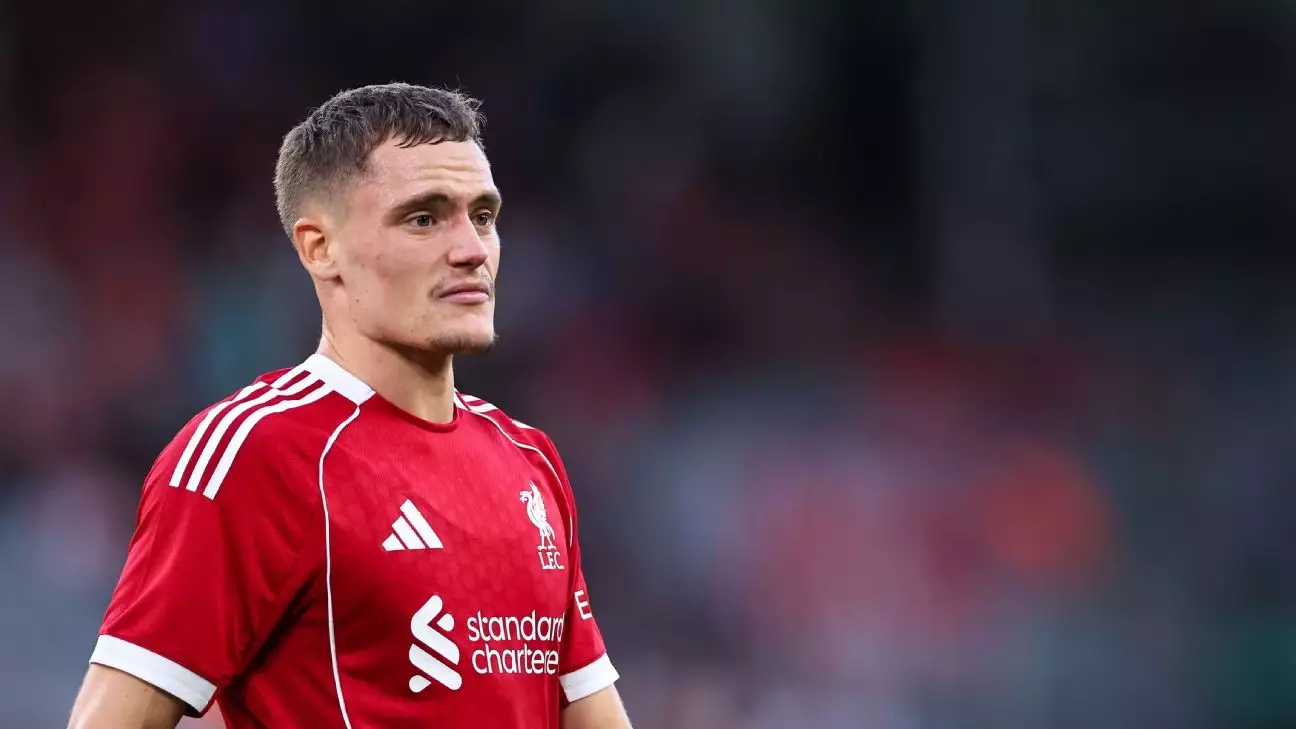Liverpool FC finds itself at a pivotal moment, balancing the loss of key players with the need for fresh ingenuity. The departure of Trent Alexander-Arnold to Real Madrid signifies more than just the absence of a talented defender; it marks the end of an era of inventive full-back play that made Liverpool uniquely threatening. Yet, the club’s recent signing of Florian Wirtz signals a strategic shift intended to compensate for this gap. Wirtz’s talent brings a different flavor of creativity—one rooted in imagination and technical skill in the final third. This move demonstrates Liverpool’s willingness to leverage emerging talents in unconventional roles, embracing flexibility that could redefine their attacking approach.
While some may describe Wirtz’s style as a departure from Trent’s precise crossing and playmaking, Liverpool’s coaching staff clearly believe that creativity’s essence resides in diverse forms. The decision to acquire a player like Wirtz—a talent with a proven track record in high-pressure situations—reflects a broader philosophy: innovation over tradition, adaptability over predictability. This strategic gamble underscores the club’s desire to evolve rather than cling to past glories, signaling a mindset committed to bold, forward-thinking solutions in a competitive landscape.
Reinforcing Defensive Resilience Amid Adversity
Pre-season friendlies have exposed Liverpool’s vulnerabilities, notably their defensive frailties when short-staffed and under pressure. The absence of core defenders like Van Dijk and Gomez exposed gaps that were exploited by Athletic Club, especially on set pieces. Conceding two goals from corners raises urgent questions about defensive organization and set-piece awareness—a huge concern heading into more challenging fixtures, such as the upcoming match against Crystal Palace.
However, coach Arne Slot’s remarks reveal a cautious optimism rooted in improvement. The team’s ability to tighten up defensively in recent games suggests they are swiftly adjusting, but there remains a need to address the set-piece vulnerabilities explicitly. In modern football, defense is as much about mental discipline and positional awareness as it is about physical ability. Liverpool must prioritize these elements if they are to successfully contend across multiple competitions. This challenge, though, also highlights an opportunity: a squad that is malleable and hungry for refinement can turn weaknesses into strengths with focused effort.
Building a New Identity with Strategic Signings
Liverpool’s transfer activity signals an ambitious plan to craft a more resilient and versatile team. The signings of players like Jeremie Frimpong, Milos Kerkez, and Hugo Ekitike convey a clear message: the club recognizes the importance of adaptability across the pitch. Frimpong’s quick integration and link-up with Salah point toward a dynamic full-back pairing, while Ekitike’s versatility hints at an attack that can shift formations mid-game to exploit opponents’ weaknesses.
This approach is not simply about adding talent but rethinking how the team functions as a cohesive unit. The focus on younger, energetic players also suggests a long-term vision: to cultivate a squad capable of evolving over time while balancing immediate competitive needs. Yet, bringing in fresh faces always carries risk. Compatibility, chemistry, and consistency are yet to be fully tested, and there’s an intrinsic challenge in integrating these new personalities into a team that historically thrived on cohesion and experience.
Honoring Past, Embracing the Future
Liverpool’s deep respect for its history remains evident amidst substantial change. The tribute to Diogo Jota exemplifies how emotional connections continue to influence the club’s culture. Remembering a fallen teammate during pre-season underscores an identity rooted in unity and resilience, vital for facing the inevitable turbulence of transition.
Nevertheless, the true test lies ahead. The pre-season results, including impressive performances by emerging talents like Rio Ngumoha and Ben Doak, shine a light on the club’s committed focus on youth development. This strategy could be Liverpool’s secret weapon: cultivating homegrown talent while integrating international stars to build a robust, multi-faceted team capable of competing at the highest levels.
The question remains whether Liverpool’s bold new approach—marked by strategic signings, tactical flexibility, and a willingness to innovate—will translate into sustained success. The club’s future hinges on its ability to merge the lessons of the past with the demands of modern football, innovating relentlessly while honoring the spirit that has made Liverpool a storied institution.

